Gas Boiler Ban: The Future of Heating
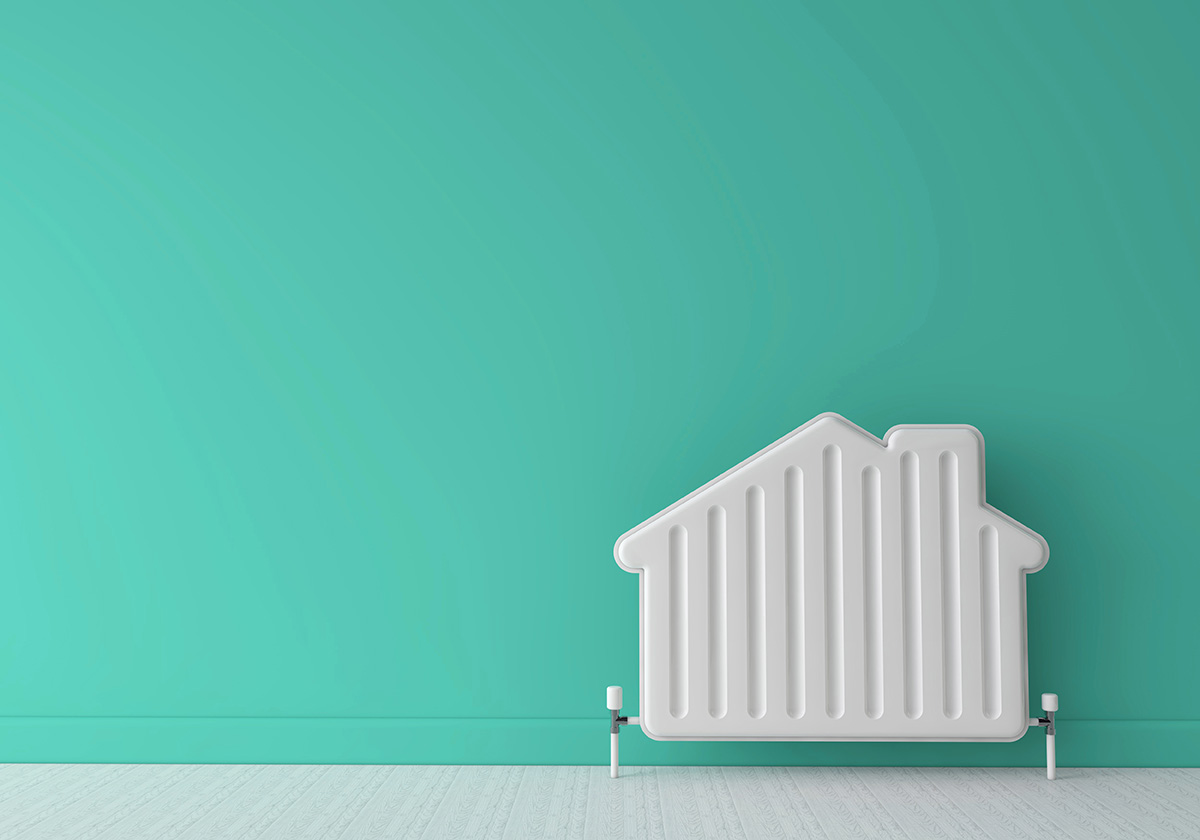
Published: Thursday, 09 February 2023
Gas Boiler Ban: The Future of Heating
Since the 1930s, the UK has relied on gas and oil based central heating. Over the past year, the UK Government has announced a new plan to phase out gas boilers by 2050, forcing homes to use greener ways to keep warm.
So, what will a gas boiler ban mean for you? To find out more about the ‘Future Home Standard’ plan and the low-carbon heating alternatives available, continue reading this useful guide brought to you by YESSS Electrical.
Why Do We Need a Gas Boiler Ban?
It is currently estimated that around 85% of the UK population are still using gas and oil boilers. In 2019, The Climate Change Committee announced that a third of the UK’s gas emissions are caused by carbon heating systems.
Gas and oil are fossil fuels that release carbon dioxide when burning, contributing to 30% of greenhouse gases in the atmosphere. The most effective way to reduce our country's CO2 emissions and maintain environmental sustainability is by using low-carbon alternatives for heating.
When Will Gas Boilers Be Banned?
In hope to tackle climate change, in 2019, Chancellor, Philip Hammond, pledged to “mandate the end of fossil fuel heating systems.” By 2025, gas boilers will be replaced by renewable heating systems in all new build houses, with the aim of achieving net-zero carbon emissions by 2050. While this hasn’t yet been signed into law, it’s currently on its way through parliament.
Who Does the Gas Boiler Ban Affect?
If you’re worrying about having to dispose of your existing gas boiler, don’t. The gas boiler ban only applies to newbuild properties. There are currently no plans to completely phase out gas boilers in existing homes.
Existing homeowners and landlords will still be allowed to use their gas boiler, however, the ban has sparked a lot of interest in alternative, more efficient heating systems.
Whether you’re looking to buy a new house or planning on staying at your current home, it’s a good idea to consider opting for a low-carbon heating alternative to help contribute towards the decarbonising of the planet. Choosing an energy-efficient heating source can also help you save money on your energy bills.
If you live in England or Wales, you can apply for ‘The Boiler Upgrade Scheme’, providing you with a £5,000 contribution towards a renewable heating system.
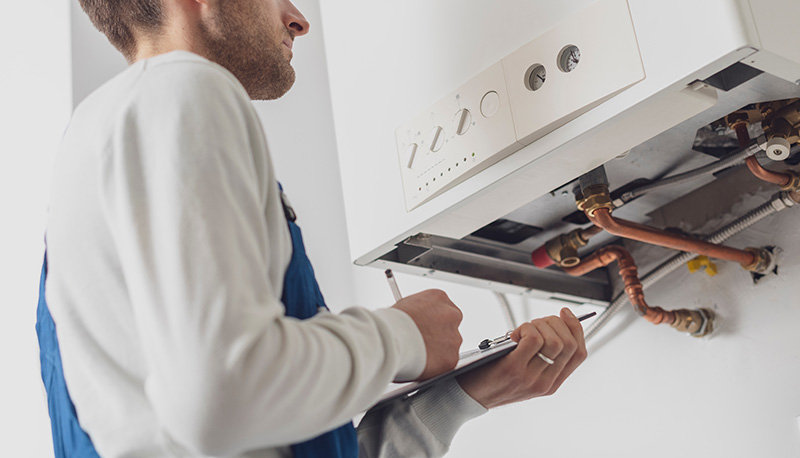
Alternatives to Gas Boilers
There are many environmentally-friendly ways to heat your home including. These include heat pumps, electric radiators and hydrogen boilers. Below, we will discuss the advantages and disadvantages of each option.
Heat Pumps
Heat pumps absorb natural heat and use this to provide your home with heating and hot water. There are three types of heat pumps: ground source heat pumps, air source heat pumps, and water source heat pumps:
Ground Source Heat Pump
A ground source heat pump, also known as a geothermal heat pump, absorbs heat from the ground via pipes which are fitted beneath your garden. Heat is absorbed from the ground into the fluid in the pipes and transferred to the heat exchanger. The fluid is then directed to the heat pump where the temperature is raised and transferred into the water to heat your home.
Air Source Heat Pump
Air-to-air Heat Pump
An air-to-air heat pump transfers heat from the outside air and into your home through a series of fan units.
Air-to-water Heat Pump
An air-to-water heat pump is very similar to an air-to-air unit, however this system is in charge of keeping your home warm via the radiators and underfloor heating, transferring heat from the outside air into the water.
Water Source Heat Pump
A water source heat pump extracts heat from a local water source, for example a lake or river. With a water source heat pump, pipes are installed underground to connect the lake to the property. The generated heat energy is then passed through a compressor which raises the temperature to provide usable heating and hot water. Water source heat pumps are used in a variety of buildings, including both residential and commercial.
Advantages and Disadvantages of a Heat Pump
| Pros | Cons |
| Suitable for a range of buildings | Requires pipework |
| Better for the environment | Can be expensive and complicated to install |
| long-lasting | Can be less effective in extreme weather conditions |
| Low running costs |
Despite the drawbacks, the UK government has made plans to install around 600,000 heat pumps per year by 2028.
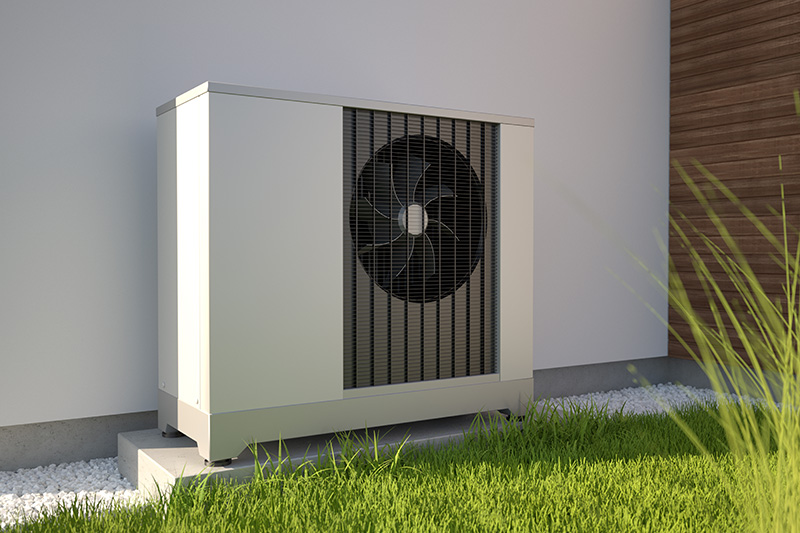
Electric Radiators
Electric radiators generate heat through convection and radiation, providing fast and reliable heating. Unlike standard radiators, electric radiators do not contain water, but instead contain the thermodynamic fluid, glycol. Using metal heating elements and glycol, electric radiators draw power from your electricity supply to effectively heat the air inside your home.
Electric radiators are highly efficient, converting 100% of power into heating for your home. This means that no energy is wasted and you can get complete value for the money you spend on electricity consumption. Electric radiators are designed to be plugged into your existing electrics via the standard plug, making them convenient for a range of homes.
Advantages and Disadvantages of Electric Heating
| Pros | Cons |
| 100% efficiency | Electricity rates are often more expensive than gas rates |
| Fast, reliable heating | |
| Long-lasting warmth | |
| Wall mounted or portable options available | |
| Zero wastes emission | |
| Low installation costs | |
| Can be installed DIY | |
| Low maintenance | |
| Temperature control | |
| Smart control |
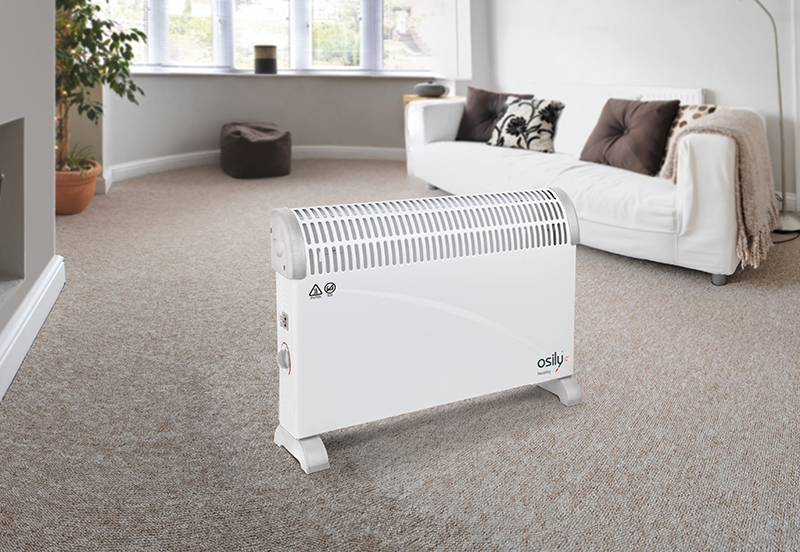
Hydrogen Boilers
Hydrogen boilers work very similarly to gas boilers, but instead of burning gas, they burn 100% hydrogen to heat water. This hot water is then stored for later use. Hydrogen boilers are a much more environmentally-friendly option, when compared to a gas boiler. This type of boiler is connected to the mains and fed hydrogen to heat your home.
The UK government is currently planning to introduce a 20% hydrogen blend into the mains supply to facilitate hydrogen ready boilers, which are capable of combusting both gas and hydrogen. However, these hydrogen ready boilers are still undergoing trials to work through the cost and safety issues of switching to hydrogen heating systems.
Advantages and Disadvantages of Hydrogen Boilers
| Pros | Cons |
| No harmful waste gases | Not yet available |
| Very similar to the gas boiler | Hydrogen is more flammable than gas |
| High energy-efficient | Hydrogen production can be costly |
| Opportunity to reduce energy builds |
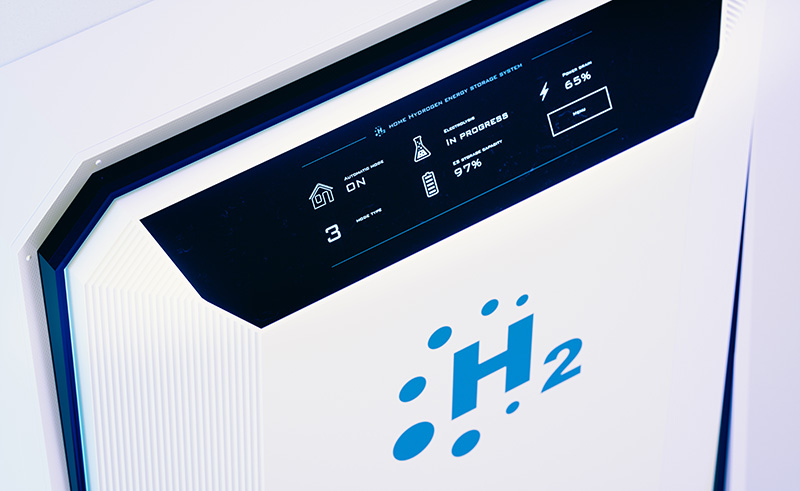
The Future of Home Heating
As the UK plans to follow through with its net-zero goals, we’re likely to see a rise in electric heating over the next few years, as hydrogen boilers undergo trials. With 2.2 million UK homes already using electric heating, this renewable alternative is likely to dominate the heating industry in years to come.
If you’re a property developer or homeowner looking for an efficient, greener alternative to the gas boiler, head over to YESSS Electrical to explore your options. At YESSS Electrical, we offer a wide variety of electric radiators, perfect for any space.
Summary Points
- From 2025, gas boilers will be replaced by greener, low-carbon alternatives.
- Heat pumps are better for the environment than gas boilers, however can be expensive and complicated to install.
- Hydrogen boilers produce no harmful waste gases, but are still currently undergoing trials due to safety concerns.
- Electric radiators provide long-lasting heat with zero waste, making them the most convenient heating alternative.

